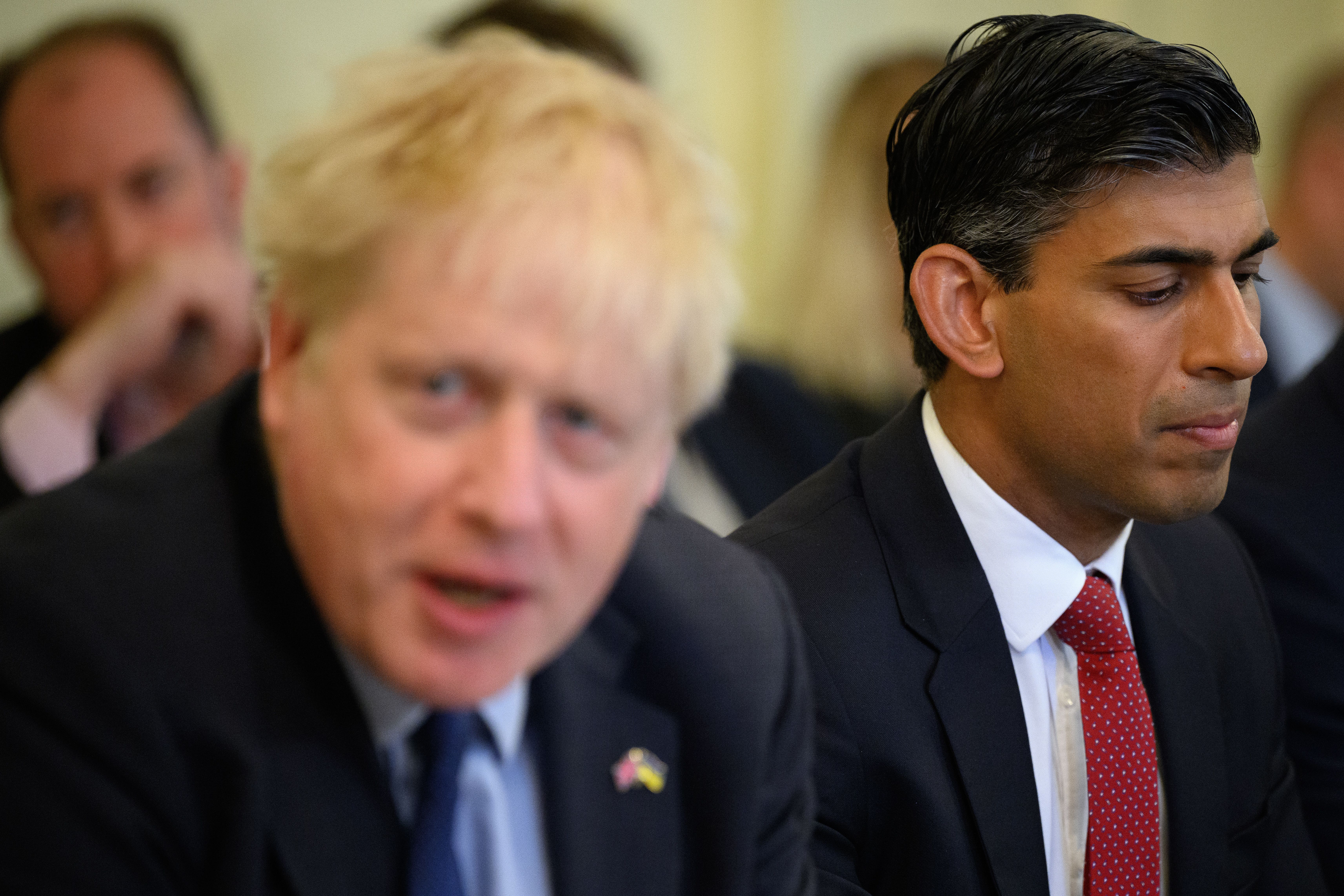Boris is settling in as a sideline sniper, with Sunak in his sights
Editorial: Despite an extraordinary war of words, Rishi Sunak is quite right to sense that the country doesn’t wish to relive those lawless, feckless, reckless days. Integrity matters and someone has to speak up for it

Rightly, Rishi Sunak has decided to defend himself against the torrent of abuse, half-truths and unfounded conspiracies spewed out by Boris Johnson and his few remaining outriders in recent days.
In a short digression during his turn at London Tech Week, the prime minister did not hold back: “Boris Johnson asked me to do something that I wasn’t prepared to do because I didn’t think it was right. That was to either overrule the Holac [House of Lords Appointments Commission] committee or to make promises for people. Now, I wasn’t prepared to do that. I didn’t think it was right, and if people don’t like that, then tough.”
Harking back to his pledge to bring integrity, professionalism, and accountability into government, Mr Sunak went on to explain that he wanted to do things differently because he wanted to “change politics, and that’s what I’m doing”.
Indeed so, though both of his predecessors – Liz Truss seems to think she’s a kind of auxiliary foreign secretary – are doing their best to impede him in his work. Realistically, with the Commons privileges committee report due imminently, along with a parliamentary debate on its findings, plus three by-elections and a volume of Mr Johnson’s memoirs due in the summer, there will be many more of these distractions to come.
Ominously, in his Trumpian resignation statement, infused as it was with conspiracy theories and attacks on the legitimacy of parliament itself, Mr Johnson declared: “We must not be afraid to be a properly Conservative government.” The implications are clear and menacing: Mr Johnson intends to carve out a new role as a sniper.
Still, for all that, Mr Sunak and his party are in a stronger position, and Mr Johnson is in a weaker one. In resisting Mr Johnson’s extraordinary demands, Mr Sunak has shown that he is not going to play the kind of manipulative, rule-breaking games that Mr Johnson did – games that landed the former prime minister in such trouble that they brought him down, probably for good.
Mr Sunak treats established procedures and conventions with some respect – indeed, in the cases of Nadhim Zahawi, Dominic Raab and Suella Braverman, perhaps erring too far on the side of caution. Mr Johnson’s attitude to such matters is notoriously different. Mr Sunak is quite right to sense that the country doesn’t wish to relive those lawless, feckless, reckless days. Integrity matters and someone has to speak up for it. Mr Sunak, who has made misjudgements about disclosing the full financial affairs of his family, cannot afford to cede this ground entirely to Sir Keir Starmer.
It is worth contemplating for a moment the invidiousness of the position in which Mr Johnson tried to place Mr Sunak. During their supposed peace summit on 2 June, Mr Johnson reportedly made Mr Sunak an offer that he, the prime minister, had to refuse. Mr Johnson proposed that his controversial honours list be implemented in full with the weight of Downing Street thrown behind it; that he should be made a special envoy to Ukraine; and, crucially, that Mr Sunak should whip Tory MPs to halt the privileges committee investigation into whether he had lied to parliament. In return, Mr Johnson promised to end any speculation about leadership challenges (which has anyway, thus far, proved to be overblown).
Even if Mr Johnson’s promise was genuine, and even if Mr Sunak had possessed the power to fulfil Mr Johnson’s demands, it would have been quite wrong of him to agree to them. Had he done so, it would eventually have leaked out, and it would probably have damaged both Mr Sunak’s reputation and the prospects of the party. Mr Sunak wanted to do things differently.
In due course, in the familiar way of the law of diminishing returns, Mr Johnson’s splenetic, bitter, paranoid attacks on Mr Sunak will be seen increasingly for what they are – sour grapes. They will not advance his cause if they are judged to be helping to lose his party the next election and to put at risk the seats of his former colleagues.
Mr Johnson has a following in the party membership, who still seem unaccountably charmed by him, and he remains a noisy distraction – but that’s all. He has never enjoyed much of a following in the parliamentary party, and the relationship was mutually transactional – he was useful so long as he was a winner, and, when he ceased to be one after Partygate and various other scandals, he was dispensed with. He is not going to make a comeback.
Indeed, his recent actions must make it more problematic for any association to adopt him, even without the hostility of Conservative headquarters. Without a seat, Mr Johnson cannot run for leader. If Mr Sunak were run over by a bus tomorrow, it would do Mr Johnson no good as a parliamentary outsider.
More than anything, though – as is the case with Brexit, in which Mr Johnson played such a prominent role – the public wish to move on from the traumas of the last seven years or so. If he did but know it, Mr Johnson’s departure from the Commons is helping to usher us into the post-Boris age.






Join our commenting forum
Join thought-provoking conversations, follow other Independent readers and see their replies
Comments